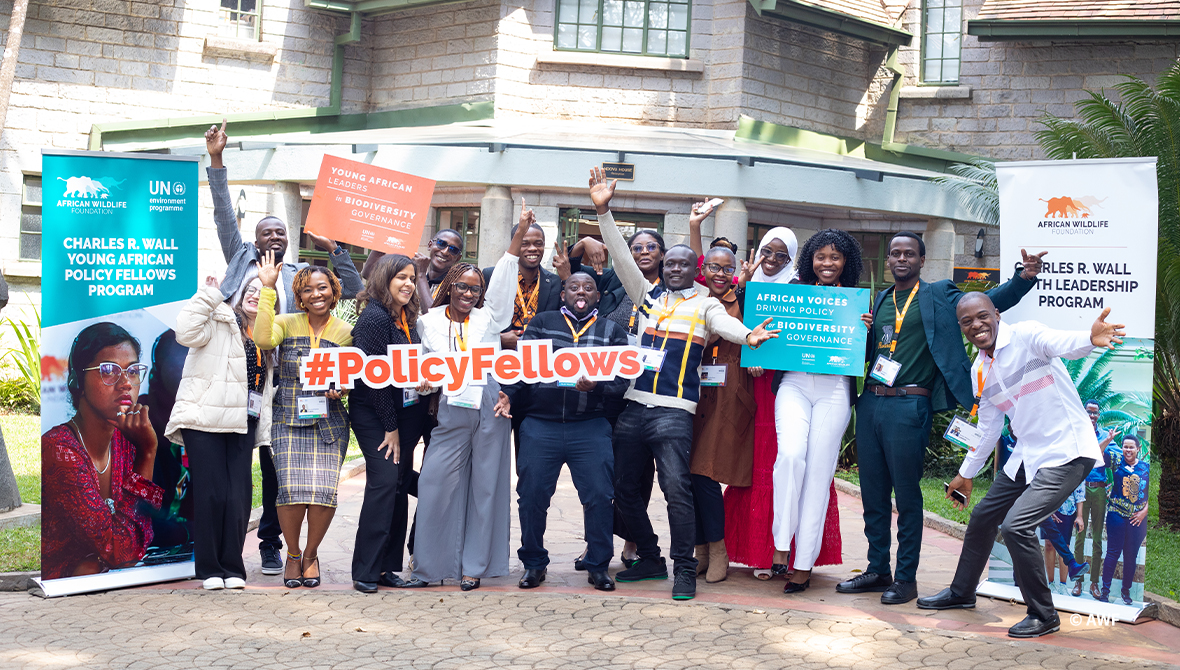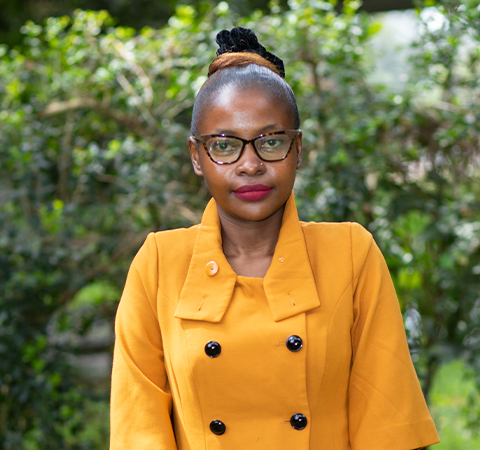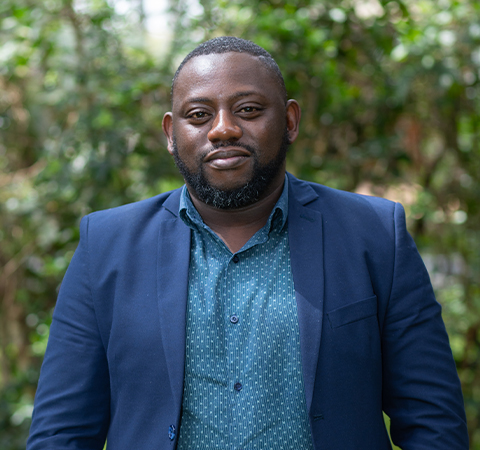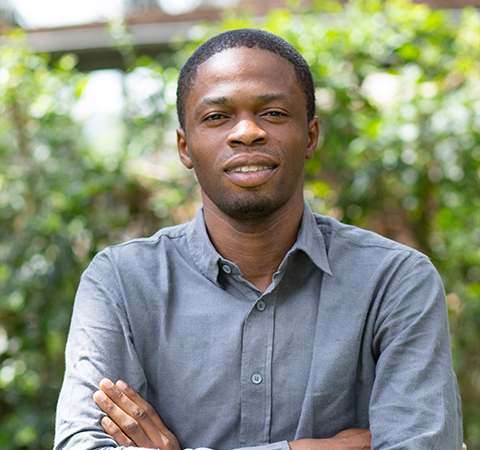International Youth Day: AWF Amplifies Young African Voices in Sustainable Development

Africa has the youngest population in the world, with 70% of sub-Saharan Africa under the age of 30. This positions its youth as crucial drivers in shaping a sustainable future for the continent's communities and ecosystems.
Today, on International Youth Day, the African Wildlife Foundation (AWF) reaffirms its commitment to investing in young African conservation leaders to create a new generation of change agents who champion meaningful conservation action across Africa.
This blog spotlights three inspiring young conservationists from Kenya, Nigeria, and Zimbabwe who are part of the 3rd Cohort of the AWF Charles R. Wall Young African Policy Fellows Program—a partnership between AWF and the United Nations Environment Programme (UNEP) aimed at establishing a pool of young African leaders in international biodiversity governance.
We delve into their conservation efforts, the challenges faced by African youth in their specific regions, recommended actions to overcome these barriers, and how the policy fellowship has advanced their conservation work.

Furaha Charo | Network of African National Human Rights Institutions (NANHRI), Kenya
With over six years of experience in policy and development, Furaha Charo addresses governance, environmental, and human rights issues. She supports the Network of African National Human Rights Institutions (NANHRI) in amplifying the voices of indigenous peoples in international environmental governance.
Charo notes that many East African youth face barriers to participating in conservation due to limited access to education, resources, and mentorship. She believes that programs like the AWF Charles R. Wall Young African Policy Fellows Program foster connections to nature and innovation, significantly enhancing youth engagement in conservation.
“The program has provided essential learning, networking, and skill-building opportunities, improving my ability to articulate African perspectives in international environmental policymaking. This has been achieved through in-depth engagements with leading pan-African policy and environmental experts,” she reflects. “I am excited to apply these skills at the upcoming 29th Conference of the Parties (COP29) in Baku, Azerbaijan, where I will closely support the African Group of Negotiators.”
Charo calls on her fellow youth to harness their power in shaping a sustainable future. “We are the drivers of change,” she emphasizes, urging young people to protect the planet and work toward a just world for all.

Ignatious Kudakwashe Maeresa | Program Management Unit Lead, Land and Natural Resources Department, Zimbabwe Environmental Law Association (ZELA)
Ignatious Kudakwashe Maeresa is an environmental lawyer specializing in biodiversity, wildlife, and natural resources law. With over seven years of experience, he leverages legal and policy frameworks to advance the conservation and sustainable use of natural resources, including tackling biodiversity-related crimes.
Maeresa highlights that young conservationists in Southern Africa face challenges such as limited engagement in decision-making, inadequate career opportunities, and restrictive cultural and social norms, particularly patriarchal ones, that hinder their participation and leadership in conservation.
"Meaningful youth engagement in conservation can be enhanced by supporting youth-led initiatives, building the capacity of young conservation leaders, and strengthening existing networks and groups,” he says.
Maeresa credits the AWF Charles R. Wall Young African Policy Fellows Program for deepening his understanding of international biodiversity law and policymaking, refining his expertise, and advancing conservation through law. He urges his peers to embrace their role as custodians of the environment, exemplifying this with his leadership in the first wildlife crime baseline survey in Zimbabwean courts, which led to the implementation of the Zimbabwean Wildlife Crime Court Monitoring project.

Fredrick Abu Ayodele | Scientific Officer, Federal Ministry of Environment, Nigeria
Fredrick Abu Ayodele, a Scientific Officer at Nigeria’s Federal Ministry of Environment, has over five years of experience in forestry, wildlife, and biodiversity conservation. He contributes to conservation efforts by drafting and implementing environmental policies and developing advocacy action plans addressing climate change and biodiversity loss across Nigeria.
Ayodele identifies the main challenges for West African youth in promoting sustainable development as limited engagement at subnational levels, education systems that fail to foster problem-solving skills in conservation, and a lack of job opportunities in the field.
He asserts, “To meaningfully engage youth in conservation, we need curriculum reforms that integrate conservation education, create job opportunities through youth-led initiatives, and promote inclusive policies that ensure youth representation in environmental decision-making.”
Ayodele leads afforestation and reforestation initiatives in communities to restore degraded lands in Nigeria. He credits the AWF Charles R. Wall Young African Policy Fellows Program for enhancing his leadership and negotiation skills in Multilateral Environmental Agreements, increasing his effectiveness in conservation across Africa.
He encourages his peers to take proactive steps in environmental conservation. “We are young and vibrant, and it is our responsibility to protect our resources and ensure a sustainable future for generations to come,” he emphasizes.
These stories emphasize the important role of Africa's youth in conservation and sustainable development. On this International Youth Day, we celebrate their voices and accomplishments and pledge to support their efforts in securing a sustainable planet for future generations.